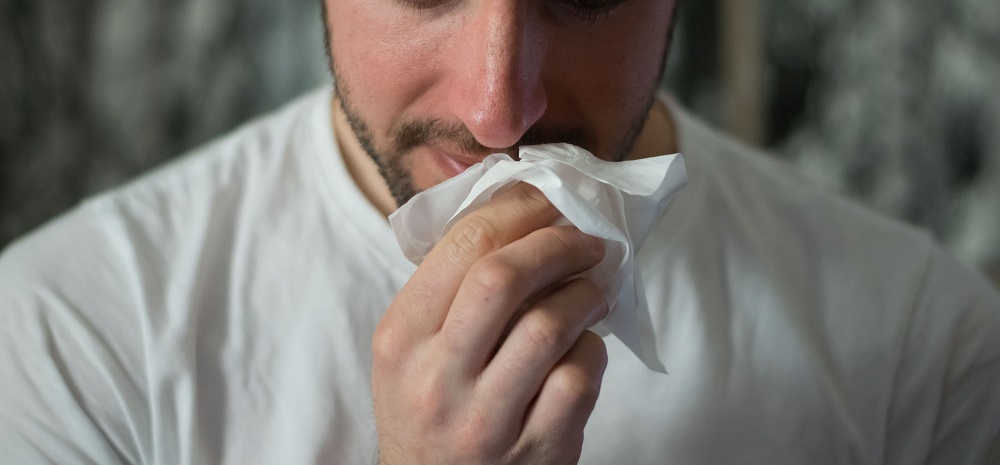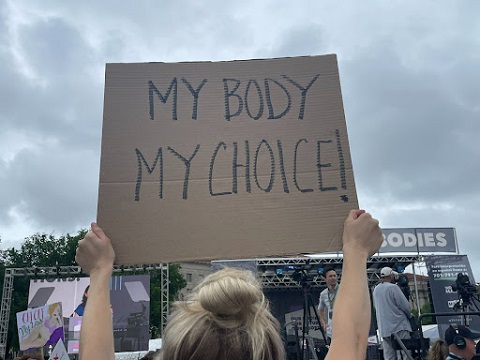By Helen Hill, Street Roots
For those who are housed, feeling the first tinges of a winter cold or flu means settling in on the couch with hot tea and soup, a warm comforter and a list of Netflix movies to watch. Rest, fluids and access to a warm shower and a clean toilet let the immune system eventually kick in, and after a week or two, or even a few days, most are healthy again and ready to return to work, the garden and the family.
For those who are living on the streets, a common cold can develop into a potentially life threatening illness. This year, serious cases of flu and pneumonia have been rampant among the Street Roots community and have landed several in the hospital. The seasonal cold, rain, wind and snow this February and March have taken a toll.
We talked to some of our vendors about what it’s like being sick and on the streets.
“I stay healthy as long as I stay out on the streets,” vendor John Smith said. “I get sick whenever I use the emergency shelters in extreme weather because we are all crowded in there, but when the nightly shelters don’t open, that’s hard too.”
John agreed that chest colds that progress into pneumonia are the most dangerous illness on the streets. When I asked him what he does when he feels he is coming down with a cold, he said: “I just try to find a spot where I can curl up and rest during the day. If you go to the day shelter, it’s a madhouse and you can’t rest there. You can nod off, but you’re not safe; you have to hold onto your bag. Yeah, it’s tough being sick out there.”
A vendor who wished to remain anonymous said his secret weapon is iodized salt.
“I flush my nostrils with iodized saltwater,” he said. “If I have a cough or a scratchy throat, that helps me not get pneumonia and flushes out the bacteria. It doesn’t allow the bacteria to enter the lungs.”
He also addressed the danger of open wounds: “Cuts take longer to heal outside. If I cut myself recycling or if I have an open wound, it takes a long time to heal. Normally it might take a few days for a wound to heal, but on the streets, it can take weeks or months, and it can get infected. I use iodized salt on wounds. It’s easy to get. I learned it from my grandmother. She put me in a bathtub with iodized salt when I got bit by a cat when I was a kid.”

Mark Herinek was blunt. “I am 59 years old,” he said. “I spent three months on the street and got pneumonia.” Mark was in a coma while his body healed.
“You’ll die eventually if you don’t get housing or get off the streets,” he said. “Now I’m in the missions.”
Brian Lane said he hasn’t been well since he “got caught out in the rain.”
“You just have to suck it up,” he said. “There’s nothing you can do if you don’t get enough sleep. Sleep is important. It gives you a mental and physical morale boost. I’m usually so tired I can’t tell if I’m sick or not.”
Brian recently went to the hospital after waking up on the streets vomiting violently. He called an ambulance and was treated for flu at a local hospital. When he was released at 2am, he had nowhere to go.
“I was dog tired. I went down under the pier out of the wind to sleep. When I woke up, my new boots were gone,” he said.
Brian eventually made it back to Street Roots, where another vendor gave him an extra pair of shoes from his storage unit.
Mark Rodriguez knows exactly when he got sick.
“I had to sleep in the snow. It was freezing. Thankfully they had the Portland Rescue Mission open all the next day, and I could sleep inside in a chair where it was warm,” he said. “You just do what you can do. Sleep is the main thing. I would just like to rest right now, but I have to keep moving, sell papers, make money.”
“You’ll die eventually if you don’t get housing or get off the streets.”
Jason Scheer agreed that the worst part of staying healthy is lack of sleep.
“To find somewhere to rest takes skilled planning. You can stay in an unused doorway or inside some churches, but you have to know where it’s safe to go. Some pastors let you sleep inside,” he said.
Rex has frequent bouts with diarrhea due to a pancreatic condition.
“I will always have problems,” Rex said. “I crap my pants all the time, and my self-esteem is so bad. That’s why I come here to Street Roots, because I can use the bathroom.
“People in stores look at you when you need to use the bathroom like you’re going to steal something. Places where they feed you don’t have bathrooms, and we have trouble washing our hands. Look at my hands; would you eat with these?” Rex asked.
“If you go to a mission for a clean pair of pants, they borderline humiliate you. I have had to sit in my shit for 12 hours. I was told they don’t give out pants till 9 a.m.,” he said. “A lot of people like me, we shouldn’t have to be humiliated to take care of our own health. They make you feel like you’re not human if you have health problems.
“There’s a five-minute limit on most bathrooms, but a lot of times you have to clean it before you use it, and that takes up practically the whole time,” he said. “Yesterday I was at McDonald’s, and one of the employees was trying to film me through the cracks in the door to see if I was shooting up in there.”
Vendor George McCarthy was resting in the office with an obvious fever.
“There’s a psychological aspect to being sick,” he said. “You feel vulnerable, nervous and depressed. If you get a horrible flu, you have nowhere to go; you have nowhere to be. You have to keep going around here or there, get on a bus, get off. It brings into focus a lot of things about homelessness. You are depressed already. You’re outside in the cold. It’s noisy. Inside, you’re always in an institutional environment with no ability to have influence over that environment. You are sick, vomiting, and you are well aware you have nowhere to go, no way to get well. It’s wretched. You feel like any social bond you had with society is broken.”




















